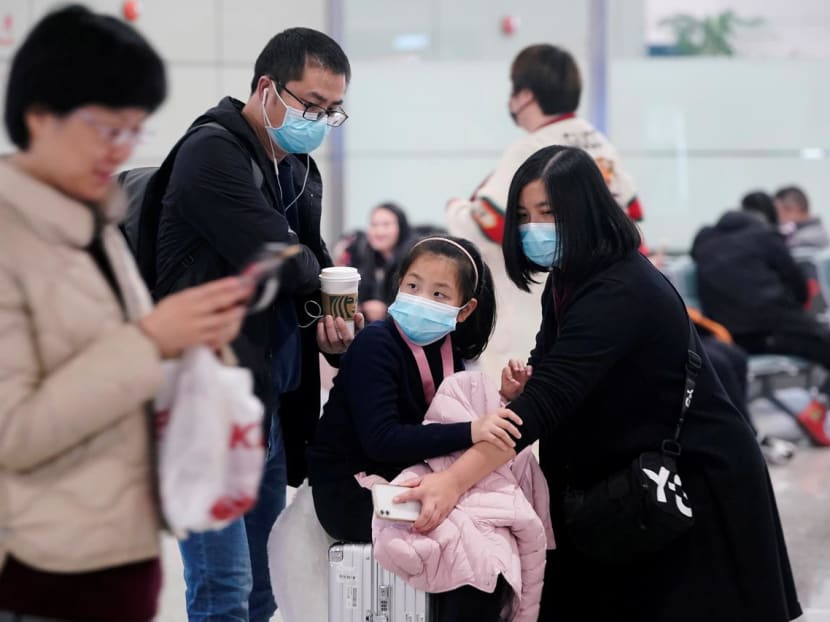Novel coronavirus: Why China is in the grips of a facial mask shortage as death toll grows
BEIJING — China is experiencing a severe shortage of facial masks used to contain the spread of coronavirus, as surging demand has emptied shelves across the country and led to shortages from Tokyo to Toronto.
BEIJING — China is experiencing a severe shortage of facial masks used to contain the spread of coronavirus, as surging demand has emptied shelves across the country and led to shortages from Tokyo to Toronto.
While the supply gap has been muddied by rampant panic buying, reports of government rationing, soaring prices and hospitals appealing for donations have highlighted a worrying shortage amid an outbreak that the World Health Organization (WHO) has declared a global health emergency.
The disease is spread primarily through droplets from coughs and sneezes and contact with infected surfaces, though researchers say it could also be transmitted through faeces.
With daily deaths reaching record highs this week, facial masks have become a necessity for people across the country and some regional governments, including Guangzhou have imposed mandatory requirements for people to wear masks in public spaces.
In Shanghai, mask sales jumped from roughly 10,000 per day to 3 million during the Chinese New Year holiday, according to government media in the city.
China is capable of producing 20 million masks per day, with medical equipment producers running at about 60 per cent capacity at the moment, according to authorities. However, it can only make about 600,000 N95 masks per day, which were capable of preventing the inhalation of 95 per cent of particles.
The nationwide shortage has prompted some Chinese to resort to making their own. In the village of Puyang in Shaanxi province, a group of housewives have formed a “sewing society” to produce home-made masks for villagers, according to local media reports.
Mr Shen Ji, the party secretary of Sichuan Health Commission, said last week that people could make masks using common cotton and cloth if they could not buy them.
Meanwhile, millions of “fake” masks purportedly built by Chinese medical hygiene manufacturer Henan Piaoan have also flooded the market. The masks, made of substandard materials, were sold across the country and have been condemned by the company.
In Tibet, where there is no mask factory, the autonomous region’s government said this week that it had gathered only a quarter of a million disposable masks in addition to some 7,800 N95 respirators for a population of about 3 million.
The severity of the shortage was underscored on Sunday when Beijing abruptly appointed the National Development and Reform Commission (NDRC) to replace the Ministry of Industry and Information Technology as the agency responsible for the provision of face masks.
Government sources briefed on the matter said the NDRC's appointment was prompted by a serious shortage of protective gear for frontline medical staff, as well as citizens in the country of 1.4 billion.
Supply has been complicated by the decision of many regional governments to extend the Chinese New Year holiday and impose travel restrictions to contain the spread of the virus, meaning many workers have been unable to return to their jobs at mask manufacturers.
Meanwhile, production at some factories has been running around the clock. Shanghai Dasheng Health Products Manufacturing said it would increase daily production by more than double to 200,000 pieces a day in 10 days’ time. One employee, who declined to give his name, said the government was “monitoring production”.
Last year, China produced 50 billion face masks, more than half of which were those for medical use, according to the Centre for Information and Industry Development (CCID).
The CCID has said China’s production capacity was adequate to meet coronavirus demand, blaming the current shortage on low inventory and factories still not running at full speed due to the Chinese New Year holiday.
China has halted exports of raw materials and equipment used to make masks, including to Korea and Vietnam, disrupting supply chains at a time when a growing number of virus cases were being reported across the globe.
Beijing has also been sourcing masks from overseas, importing 220 million masks between Jan 24 and Feb 2, including 50 million masks on Monday alone, China’s customs agency said.
While shortages have stirred worry among the public, frontline medical staff were most at risk.
Last week, the World Medical Association (WMA) made an urgent call to governments and the WHO to diversify international supply chains for medicines and supplies to help health professionals.
“We have received urgent requests from our member associations in the Asian region about a dangerous shortage of medical supplies to prevent infection of health professionals. Gloves, masks, detergents, single use coats and cloaks are all in short supply,” Dr Frank Ulrich Montgomery, chair of the WMA Council, said in a statement. SOUTH CHINA MORNING POST










